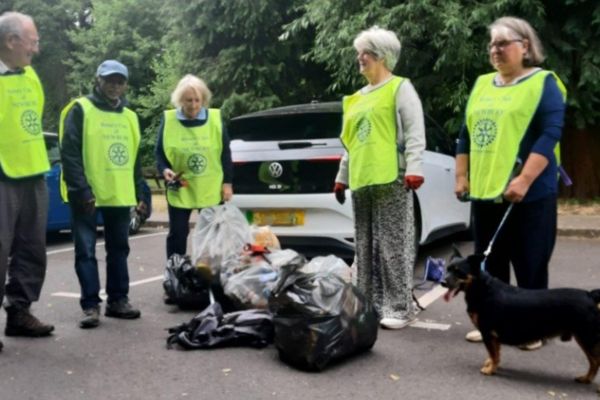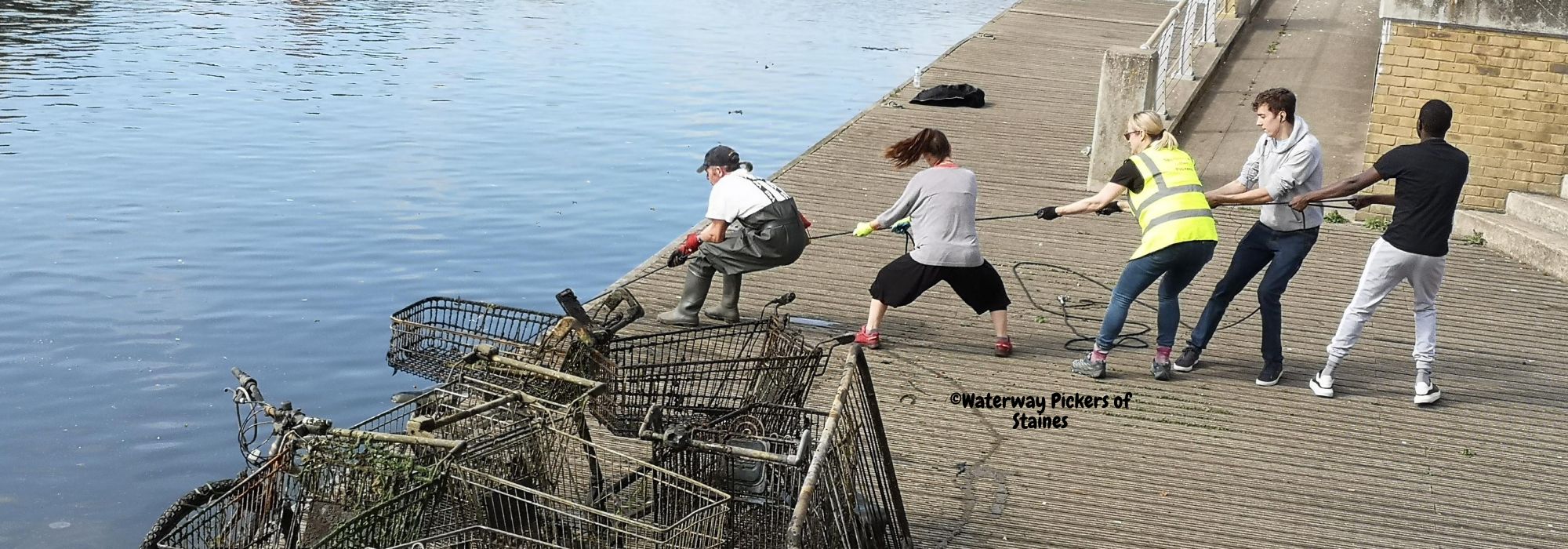Plasticblitz highlights the scale of plastic pollution in UK rivers during UN Global Plastics Treaty negotiations

Volunteers have spent 133 hours clearing litter and collecting data from rivers in England and Scotland during Plasticblitz 2025, which is an initiative led by environmental charity Thames21 in collaboration with the Environment Agency and Rotary.
The simultaneous clean-up and data collection event took place between 31st May and 15th June and, for the first time the initiative extended to Scotland. More than 500 volunteers cleared a record 65km of riverbanks – a 22% increase from the previous year.
Now in its fifth year, the Plasticblitz engages community groups, Rotary Clubs and Environment Agency teams to collect data on plastic pollution in and around rivers to raise awareness, and advocate for change in policy.
This year’s event introduced three survey forms: basic, a brief overview of different types of litter; intermediate, a more detailed data collection on plastic; and advanced, which provides the highest level of detail on litter collected. Of the 17,386 pieces of litter catergorised by citizen scientists, 71% were recorded as plastic. Food and drink-related litter accounted for 60% of items in the basic category and 24% in the intermediate category, while cigarette stubs represented 38% of the advanced survey findings.
The results come during crucial UN plastics negotiation talks, which starts from 5th August and ends on 14th August, where world leaders and policymakers are currently meeting in Geneva, Switzerland to continue the development of the Global Plastics Treaty – a legally binding document to tackle global plastic pollution.
Sarah Thornley, Catchment Partnership Development Officer at Thames21, said: “Thanks to the hard work all these volunteers, we now have a much clearer picture of how plastic pollution continues to impact our rivers. As world leaders head into international talks about reducing plastic, we urge them to consider a legally binding target for reducing the production of plastics.
“No single tool will fix the issue of plastic pollution. Manufacturers must adopt more sustainable practices and reduce waste. Policymakers need to implement robust laws that transform how we manage our waste, and consumers need to come on board and be mindful.”
Maria Herlihy, Operations and Waterways Manager, said “Cleaning up rivers requires action from everybody, and it’s really positive to hear that thanks to all the volunteers even more riverbanks have been cleaned compared to previous years. Environment Agency staff were happy to take part and help with the clean up at the same time as gathering data on the problem.”
Phil Fletcher, District Environmental Officer at Rotary in the Thames Valley, said: “Rotary in the Thames Valley have been involved with the Plasticblitz for five years, although the first year it was a river clean-up, then we joined Thames 21’s Plasticblitz.
“Over that time, we have noticed a reduction in rubbish being collected, this we like to believe is down to the increased awareness of the negative impacts of single-use plastic on the environment if it is thrown away in green and blue spaces and not recycled responsibly.
“In Henley-on-Thames, where my club conducts our Plasticblitz, we have seen other environmental organisations engaging in litter picks throughout the year. This increased effort, I believe, has contributed to a reduction in our recorded rubbish collected.
“Even the Henley Royal Regatta now runs a litter pick following the Regatta. In addition to this, Henley Town Council organised ‘The Great Henley Sack Race’ in April this year, where 200 people spent a couple of hours litter picking around the town.”
By this year, global plastic waste is expected to reach 460 million tonnes annually, with 91% remaining unrecycled, travelling across rivers, seas and the wider environment. Over the years, plastics break down into microplastics contaminating food and water resources for people and wildlife.
New groups and volunteers are welcome to join next year’s Plasticblitz to contribute as citizen scientists gathering data on plastic pollution in their local areas.
About Thames21
Thames21 is an environmental charity that works with communities to restore and look after rivers, water and nature across London and the Thames Basin.
www.thames21.org.uk | Registered Charity No. 1103997
Media Contacts
Liz Gyekye
Communications Manager
Tel: 07597584349
Manuela Rio Tinto
Communications Officer
Manuela.rio-tinto@thames21.org.uk
Tel: 07743929671
Header image – copyright – Waterway Pickers of Staines
